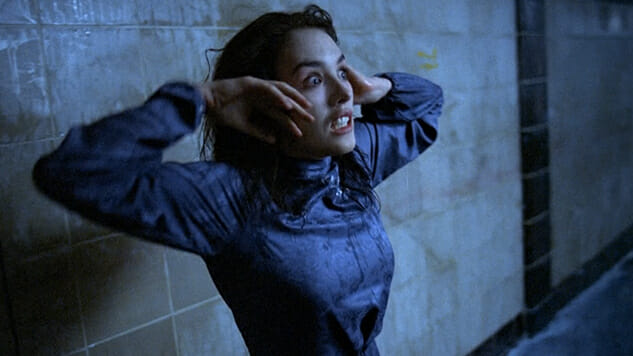The Necessary Hysteria of Andrzej Żuławski
Almost a year after Andrzej Żuławski died of cancer, his films have become more essential than ever to revisit.

On February 17th, 2016, not two months after his final film was released, Polish director Andrzej Zulawski died of cancer. Cosmos broke a 15-year hiatus for the filmmaker, who hadn’t worked since 2000. Despite his death, there has been no concerted effort to make his work more available; his first and last major retrospective was BAMcinématek’s 2012 “Hysterical Excess: Discovering Andrzej Zulawski.” Select films, like 1981’s Possession, have received luxe, but limited, Blu-ray releases—otherwise, you’re out of luck.
Zulawski’s work is intimidating, no way around that, but it rewards viewers’ effort with a singular vision of madness. Possession is his best-known film, thanks to a (heavily edited) US theatrical release as the only Zulawski to show up in Stateside theaters. Its special effects, care of Carlo Rambaldi, and a handful of Hellraiser-style lure-and-murder scenes have garnered it a midnight movie reputation, but it spreads its gore and viscera across a grueling, digressive two hours of emotional turmoil and physical abuse that mercilessly depicts a failed marriage. In fact, the hypnotic extremity of Isabelle Adjani’s performance won her the Best Actress award at Cannes, a festival which Zulawski notably hated.
The formative image of Zulawski’s filmography appeared within the first five minutes of his first film, 1971’s The Third Part of the Night: a woman, her eyes impossibly wide, a bright splat of blood marking her face. It’s all bound up in her eyes, helplessness striking her dumb in the face of death. Zulawski’s work rightly endures, despite its unavailability, because of his devotion to rendering emotions like horror and desire and bloodlust in their most abject forms. A wilder Rainer Werner Fassbinder of sorts, Zulawski portrays characters who have long ago abandoned social decorum. When Mark (Sam Neill) in Possession splutters about his wife’s infidelity not being “proper,” the word sounds hilariously uptight in the midst of the film’s notorious hysteria.
-

-

-

-

-

-

-

-

-

-

-

-

-

-

-

-

-

-

-

-

-

-

-

-

-

-

-

-

-

-

-

-

-

-

-

-

-

-

-

-








































